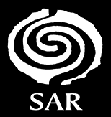 SAR News:
SAR News:SANTA FE ― Summer is a season full of diverse colloquia and seminars at the School for Advanced Research. Through July, the public is invited to attend colloquia presented by the 2016 class of Summer Scholars, and a lecture by and reception for Indigenous Writer-in-Residence Kelli Ford in August.
The Summer Scholar Colloquia schedule began Wednesday, June 29 with “Guys Like Me: Six Wars, Six Veterans for Peace,” presented by Michael Messner, Professor, Department of Sociology and Gender Studies, University of Southern California. Dr. Messner discussed that, in this time of apparently permanent warfare, U.S. men continue to return home from wars—many with physical and psychological injuries. Yet little scholarly attention is paid to the veteran whose combat experience results in a commitment to peace.
At noon, Wednesday July 6, Hoda Bandeh-Ahmadi, Ph.D. Candidate, Department of Anthropology, University of Michigan will discuss “Anthropological Generations: A Post-Independence Ethnography of Academic Anthropology and Sociology in India.” Ms. Bandeh-Ahmadi’s talk explores the disciplinary and sub-disciplinary boundaries that emerged within and around the University of Delhi (DU) anthropology department in the decades after India’s independence in 1947.
The series continues at noon, Wednesday July 13, with “Tinkering with Armageddon” with Hugh Gusterson, Professor, Department of Anthropology and International Affairs, George Washington University. This noon event focuses on why the U.S. decided to give up nuclear testing and how the weapons labs developed a new organizational culture to replace one grounded in nuclear testing. And it asks the ultimate question: how can we be sure the weapons still work if we cannot test them?
The next colloquia on Wednesday, July 20, features James De Lorenzi, Associate Professor, Department of History, John Jay College, CUNY, putting “Orientalism on Trial: Enrico Cerulli and the United Nations War Crimes Commission.” Dr. De Lorenzi’s talk explores the stormy relationship of Heruy Walda Selasse (1878-1938), the foremost Ethiopian intellectual of the early twentieth century, and Enrico Cerulli (1898-1988), the distinguished Italian orientalist and longtime colonial administrator. It examines the intertextual politics of their research and larger questions concerning the relationship between vernacular and academic knowledge.
The Summer Scholar series concludes at noon, Wednesday July 27, with “‘Half Indians’: Pueblo Governance and Sovereignty after the Treaty of Guadalupe Hidalgo” by Tracy L. Brown, Professor of Anthropology, Department of Sociology, Anthropology & Social Work, Central Michigan University. Dr. Brown will be conducting archival research at the State Records Center and the Center for Southwest Studies this summer investigating how (or if) the ambiguous status of the “real” Indian impacted the political functioning of Pueblo communities between 1848 and 1913. During her colloquia presentation, she will discuss her findings and the status of her project.
At 5:30, Wednesday August 3, there will be a public lecture and reception for Kelli Ford, Kelli Ford is the 2016 Indigenous Writer-in-Residence, and the recipient of the 2016 Elizabeth George Foundation Artistic Grant. While at SAR, she will be working on polishing up her book, Crooked Hallelujah. Ms. Ford is Cherokee and grew up in the land around the Red River that separates Oklahoma from Texas and is known among her people as “Jumping Off Point.” Kelli earned her M.F.A. in Creative Writing in 2007 from George Mason University. She will discuss the journey that lead to Crooked Hallelujah during her lecture. A reception to meet the artist will be held immediately following the presentation at 6:30 p.m. The Indigenous Writer-in-Residence is supported by Lannan Foundation.
More information on all the events, which are free and open to the public, can be found at http://sarweb.org/?calendar Each scholar and Ms. Ford are available for interviews. Please contact Suzanne Grayson at (505).954.7211 or sgrayson@sar.org to arrange.
About the School for Advanced Research (SAR): The School for Advanced Research has supported innovative social science research and Native American artistic creativity for more than a century. Since we began offering fellowships in 1972, we have funded the work of more than 350 SAR scholars and artists, among whose ranks are six MacArthur Fellows and eighteen Guggenheim Fellows. Please join us in Santa Fe for insightful lectures or a tour of the School’s historic campus. You can also follow the work of our resident scholars and Native American artists on our website, www.sarsf.org, Facebook and Twitter.

